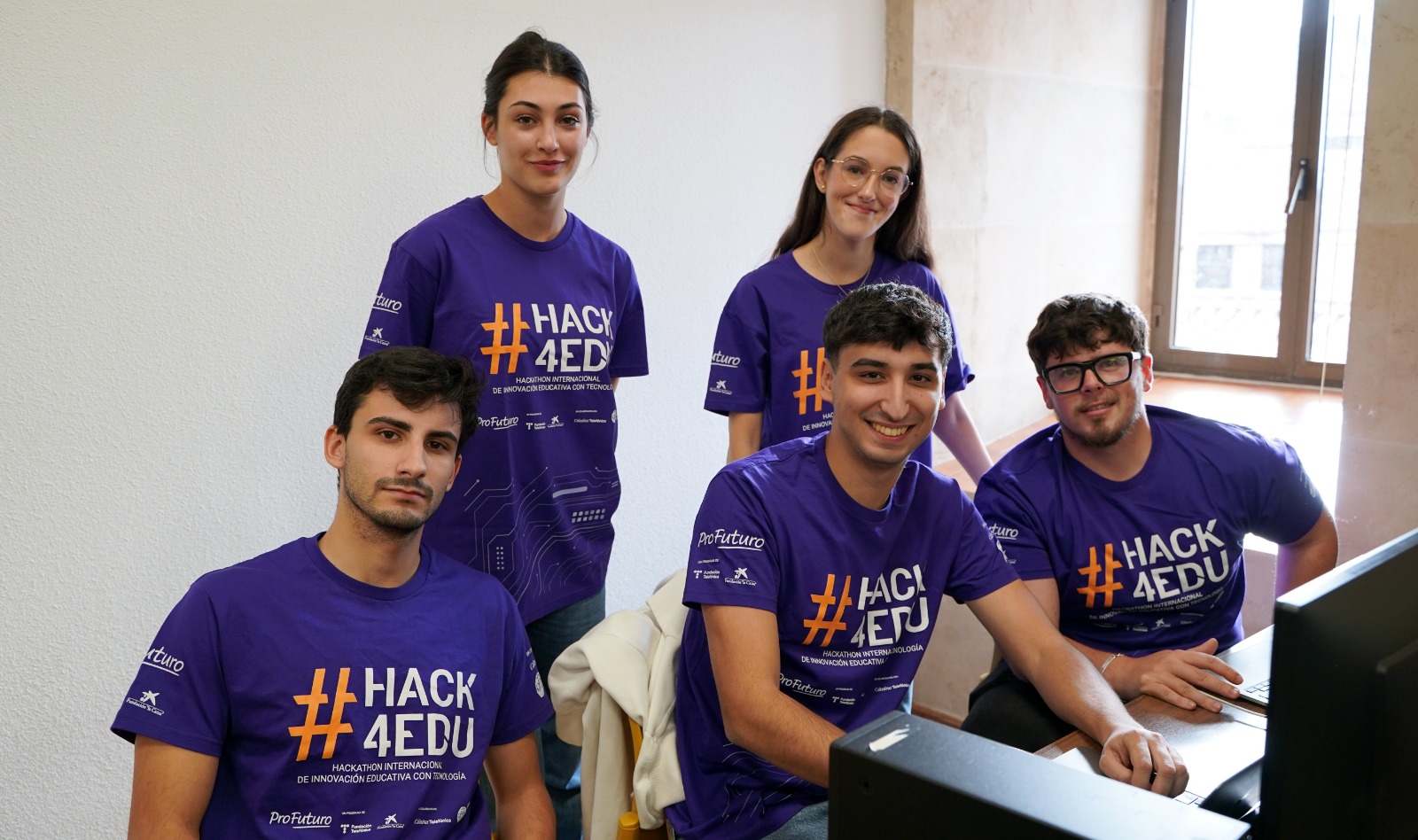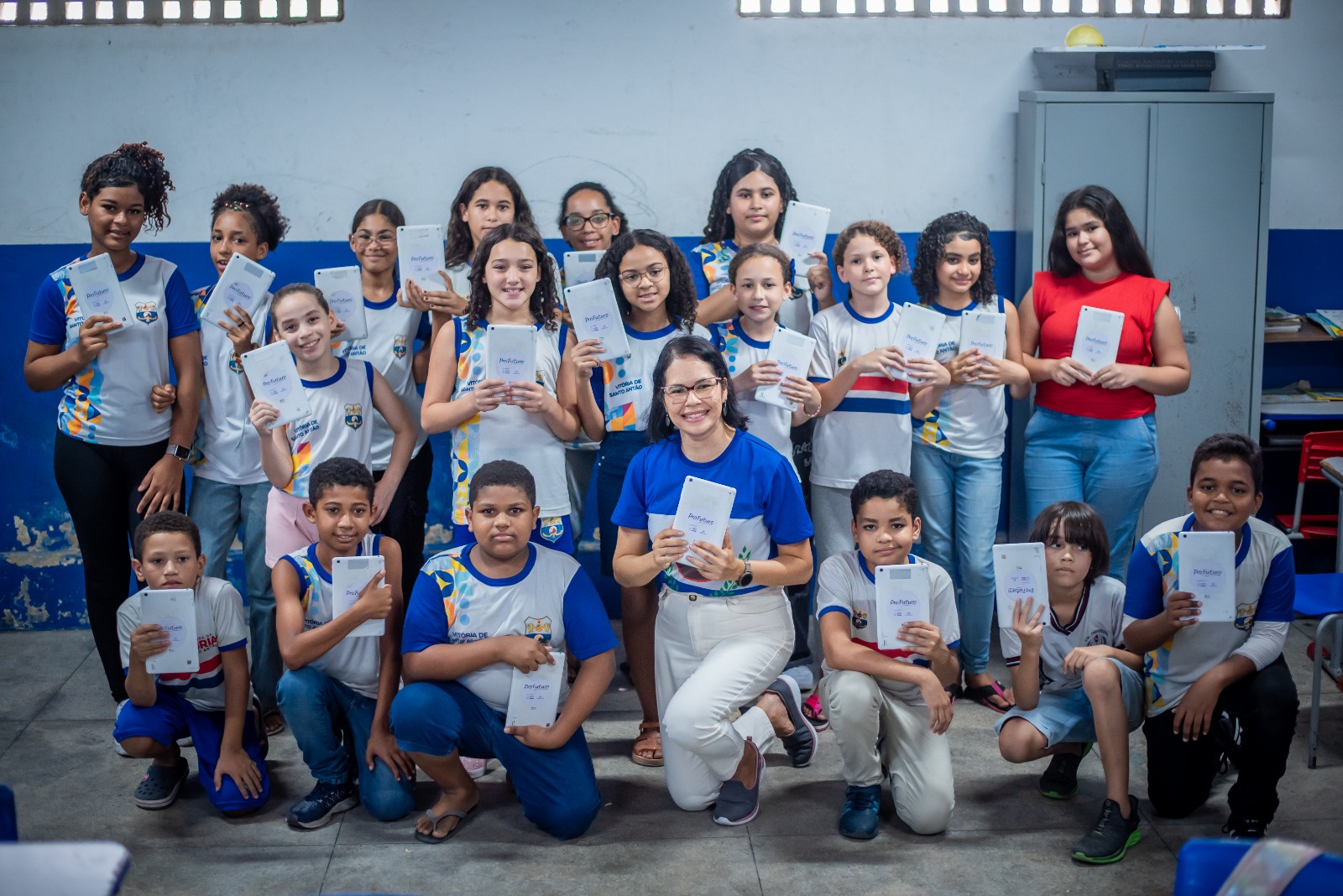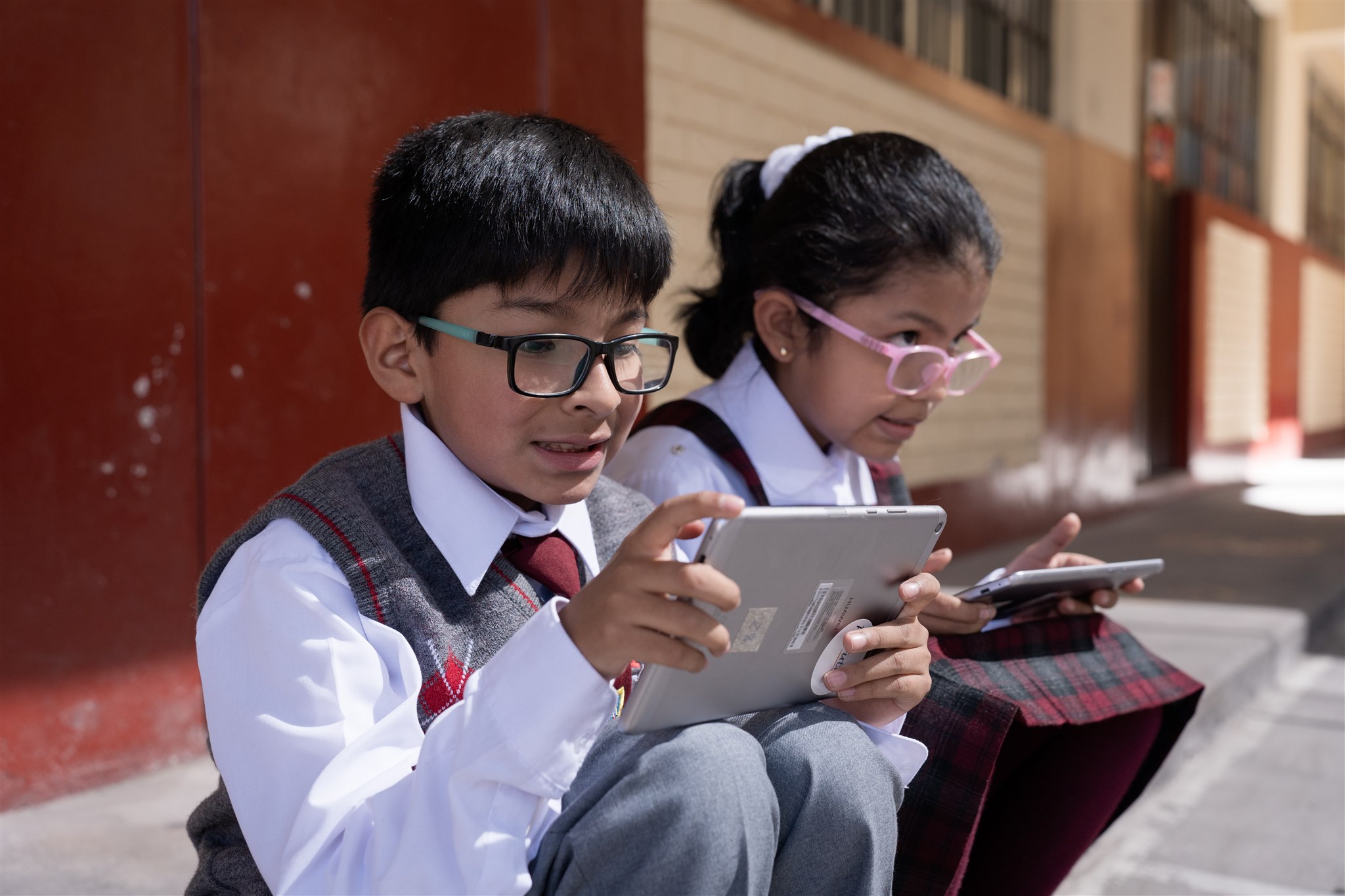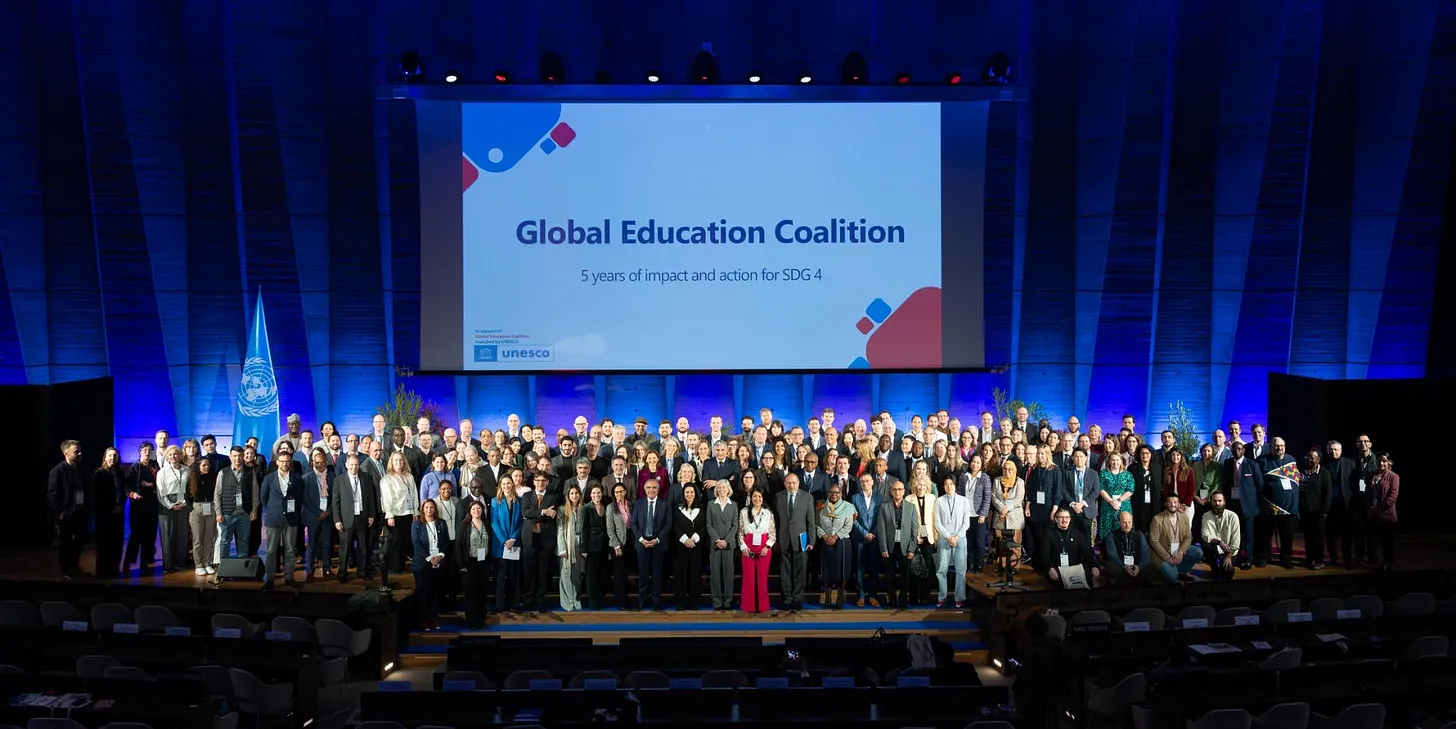The sixth edition of #Hack4Edu, the first hybrid, international hackathon with a social purpose dedicated to digital education by Fundación Telefónica and Fundación ”la Caixa”, through its educational innovation programme with ProFuturo technology and the Pontifical University of Salamanca (UPSA), in collaboration with the Telefónica Chair Network, has demonstrated the consolidation of the project thanks to its successful participation, with almost thirty universities registered, and the high level of the proposals submitted.
Students Marc Santibáñez, Marta Sánchez, Iván Evangelista and Pablo Vázquez, from UNIE University, have been awarded in the Innovation category, with the Digital Mentor challenge, for their EIDOS application, a proposal that seeks to encourage student participation in class and encourage them to ask all their questions. ‘The platform has one interface for the student and another interface for the teacher,’ explains Marc. ‘Students can use it as if it were ChatGPT. They can ask it anything, and then that information goes into a database where we have used Artificial Intelligence to categorise the chat data. That way, the information appears to the teacher in the form of statistics, showing which categories, topics and concepts are the most difficult for the student.’
The idea behind this ‘smart classroom’ is not only to promote communication between teachers and students, but also to detect possible patterns of failure among the latter. ‘Artificial intelligence has to be used ethically,’ he concludes. ‘Of course, there will be people who cheat, but with this application, you encourage responsible use.’
In Mexico, students from the Universidad Mexiquense del Bicentenario, Eduardo Salinas, Rodrigo Miranda and Emmanuel Bobadilla, won second prize, also in the Innovation category, with the challenge Inclusive educational assistant with artificial intelligence. “We developed Milo, an assistant designed to support students with autism spectrum disorder. It offers personalised, visual and interactive activities to help them develop social, emotional and communication skills,‘ explains Eduardo.
His goal, he says, is for technology to become a friendly, accessible and respectful companion for their learning process. ’Participating in Hack4Edu was an incredible experience. We developed a project with a real purpose and learned how to transform this technology into human solutions. Winning motivates us even more to continue building tools that generate social impact,‘ he concludes.
Lucía de la Vega, from the Pontifical University of Salamanca (UPSA), has a similar opinion. ’Using artificial intelligence for negative actions diminishes us as a civilisation.‘ On the other hand, ’being able to use it in a tool, a solution that helps people, is very important.”
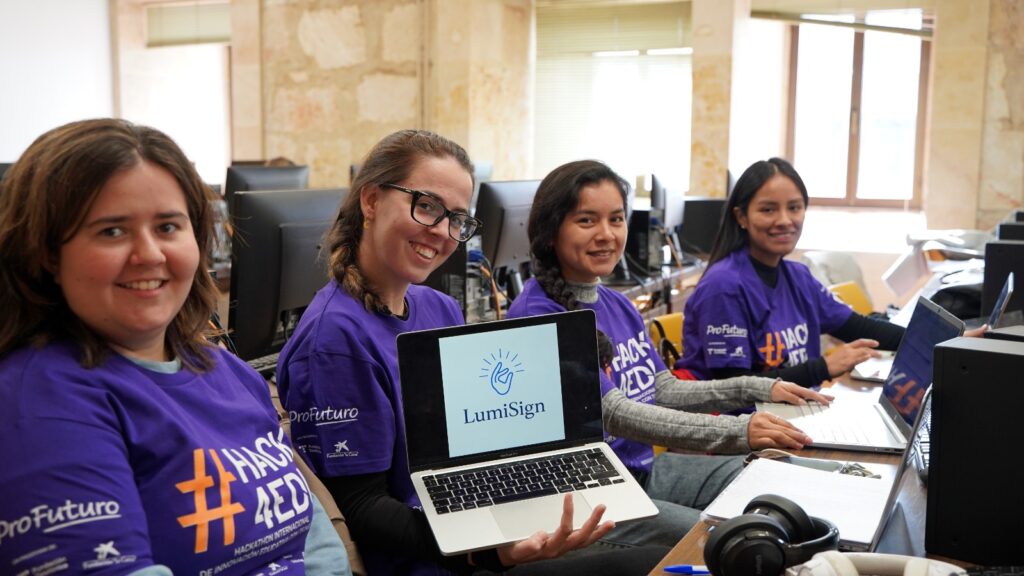
Her team won first prize in the Senior category with an application designed to facilitate two-way communication between a user who speaks sign language and their interlocutor. To do this, they used the Speech Recognition API artificial intelligence, which allows voice to be translated into sign language and vice versa. In addition, thanks to collaboration with various official bodies and associations, with their databases, they have also been able to teach their own artificial intelligence to interpret sign language.
Alonso García, Juan Valencia and Julia García Freile are also studying at UPSA. The specific prize awarded to students from this university went to their proposal, TutorIA, an intelligent educational platform that integrates gamification, accessibility and support with artificial intelligence to offer personalised learning experiences.
‘Many students, especially those with functional diversity or learning difficulties, use educational platforms that are not adapted to their needs, because each person learns differently,’ explains Alonso. ‘Education is usually the same for everyone, and that was what we wanted to change. That’s why we’ve created a solution that adjusts to the reality of each user, meaning that the design adapts to the cognitive and sensory needs of each person.’
In Peru, together with his colleagues from the National University of San Agustín de Arequipa (UNSA) José Luis Cusilayme, Alexis Mamani, Agustín Mamani and Valeria Hancco, Austin Ccallo has developed an artificial intelligence platform trained with the National Basic Education Curriculum (CNEB) and adapted to the linguistic, cultural and regional realities of the country. With it, they have won third place in the Senior category. The tool automates teaching planning and allows content to be produced in Spanish, Quechua and Aymara. In addition, it integrates functions for students with ADHD, dyslexia or ASD, and is designed to work in areas with low connectivity.
‘Our application is suited to the current educational landscape, as it organises information that is currently scattered, translating data into concrete actions rather than just documents that will end up forgotten. It will reduce the gap between what is taught and what students really need. It also translates pedagogy into a usable, fast and clear experience,’ concludes Austin.
The challenge taken up by Luis Camargo, Nazareth Franco and José Álveo, from the Technological University of Panama, has been to learn from nature with artificial intelligence. With their Nómada project, they have designed an educational robot based on artificial intelligence that, travelling through different provinces of the country, promotes learning about nature, sustainability and environmental protection, adapted to local school contexts.
‘The words that would define our project are innovation, learning, inclusion, impact and offline,’ says Luis. ‘Throughout Central America, not just in Panama, there are children who do not have an internet connection. And that is sad. It is something we should prevent. That is why we have looked for ways to connect them with different provinces and different parts of the world.’
For her part, Carmen Witsman, from the International University of La Rioja (UNIR), wanted to find a solution to a challenge she herself faced: distance learning. ‘I came up with the idea of developing a tool, a platform that I called MyLEA, where students can forget about having to organise so many things in so many places and just worry about learning.’
The application, which won her the first prize for Innovation, centralises all the tools used in studying, combining information from the virtual classroom with tools for note-taking, motivational elements, the creation of exercises and exams, and even competitions between students of the same subjects.



